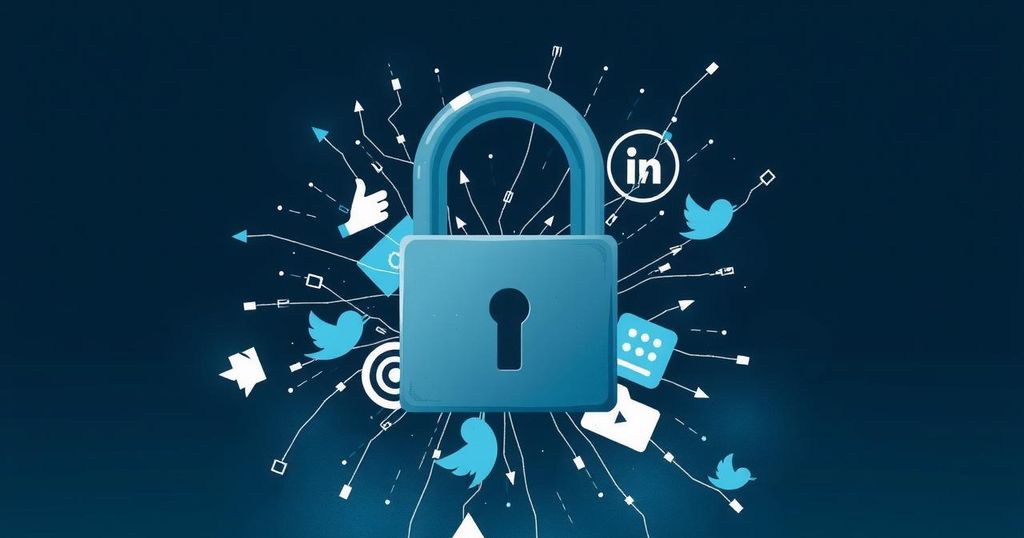Following violent protests in Juba related to deaths of South Sudanese nationals in Sudan, the South Sudanese government has enforced a ban on major social media platforms including Facebook and TikTok for an initial duration of 90 days. This decision, justified by concerns over public safety and psychological wellbeing, accompanies a nighttime curfew imposed by President Salva Kiir amidst ongoing unrest.
The government of South Sudan has mandated internet service providers to obstruct access to significant social media platforms, including Facebook and TikTok, in response to violent protests that erupted in the capital city, Juba. This unrest was provoked by reports detailing the deaths of 29 South Sudanese in violent confrontations in Sudan, leading to subsequent looting of Sudanese-owned businesses in the region.
The National Communication Authority (NCA) directed a suspension of social media services effective from midnight on January 22, 2025, lasting for up to 90 days. NCA Director-General Napoleon Adok Gai supported this action, citing the alarming surge of extreme violence exhibited in social media videos. The protests intensified, with police resorting to force against gathering crowds due to aggravating events across the border.
Gai articulated worries regarding the impact of graphic content circulating on social media on public safety and collective mental health. The violent demonstrations also followed the release of distressing videos showing assaults on South Sudanese individuals in Sudan, further igniting unrest. Major telecommunications firms, including MTN South Sudan, Zain, and Digitel, have confirmed the enforcement of this social media ban across their platforms.
President Salva Kiir has imposed a nighttime curfew as a precautionary measure and called for peace amidst ongoing tensions. Despite these efforts, South Sudan continues to confront serious political and economic challenges since gaining independence in 2011. Concurrently, instability in Sudan has resulted in a wave of returning refugees back to South Sudan, exacerbating the current crisis.
South Sudan’s recent decision to block social media arises from a backdrop of increasing unrest following tragic events reported from neighboring Sudan. The violent protests stem from heightened emotions related to the fatalities of South Sudanese citizens, resulting in widespread chaos that included looting and confrontations with law enforcement. The government’s preemptive measures, including a curfew and social media restrictions, reflect ongoing concerns regarding public safety amidst growing discontent and political instability within the nation.
In conclusion, South Sudan’s government has enacted a temporary social media blockade in response to violent protests triggered by tragic events in Sudan. This action is part of a broader strategy to ensure public safety amid rising tensions, characterized by both chaotic demonstrations and extensive media coverage of violence. The country’s continuing challenges highlight the significant socio-political and economic hurdles faced since its independence.
Original Source: newscentral.africa






